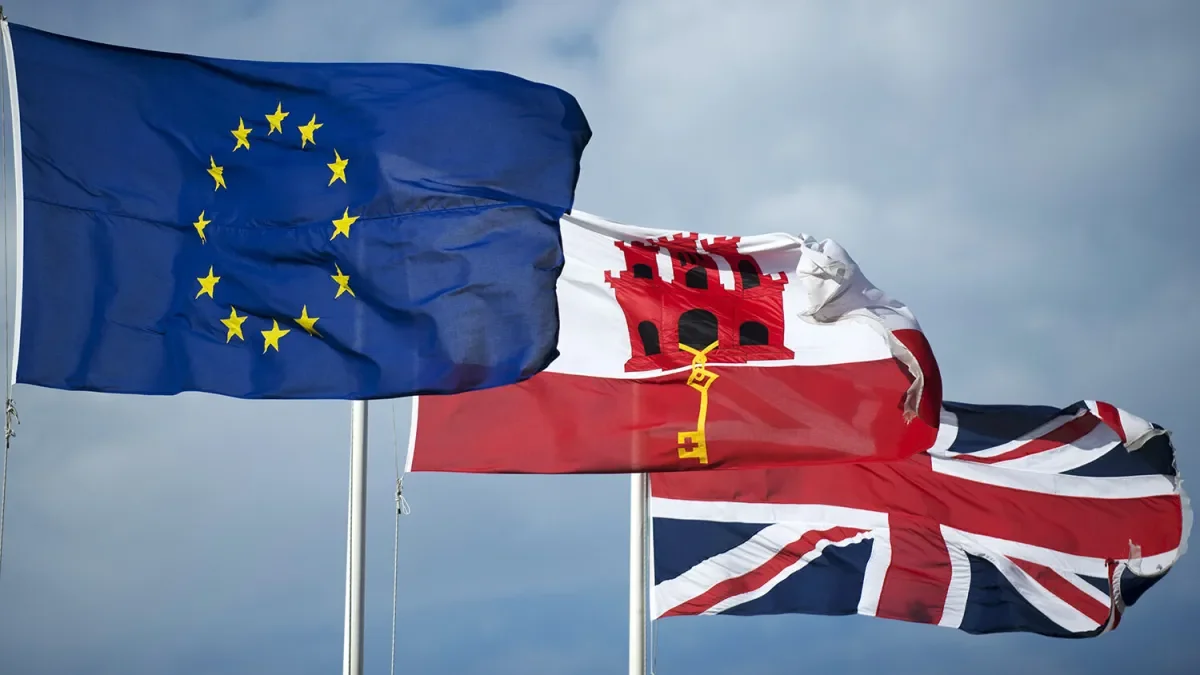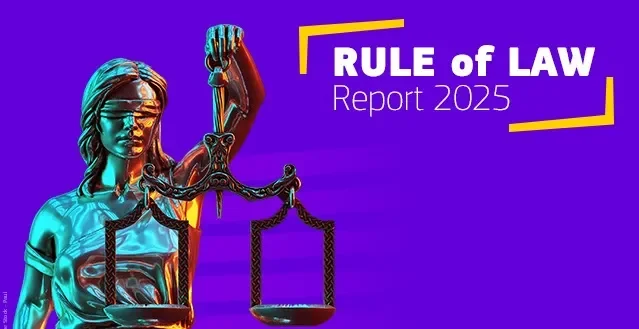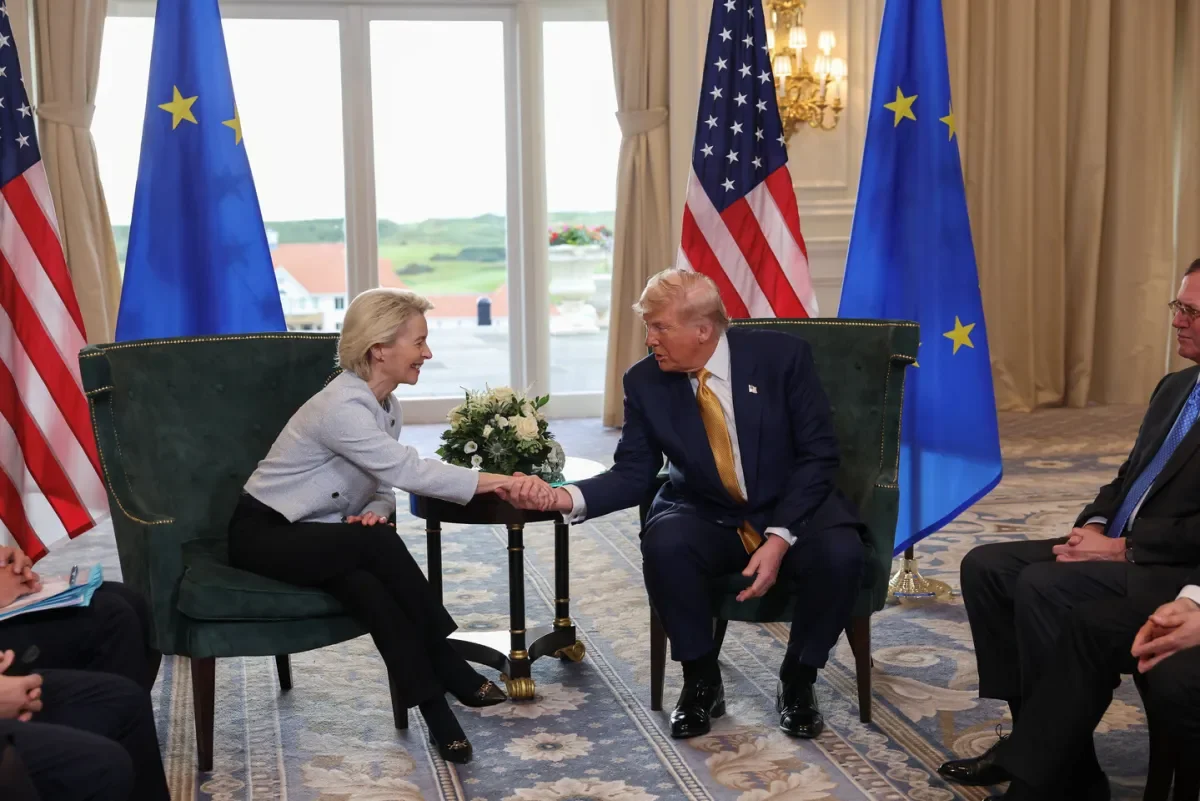
Jasmine Faudone, Dublin City University
In the Brexit referendum held on 23 June 2016, Gibraltar recorded the strongest support for remaining in the EU, with 95.9% of voters choosing to stay. Despite this objection, Gibraltar left the EU when Brexit occurred on 31 January 2020. A specific Protocol attached to the Withdrawal Agreement regulates the withdrawal from the EU. However, the implementation of the Protocol has been tortuous. Relations between Spain and Gibraltar have slowed the enforcement of the Protocol.
It should be mentioned that Gibraltar retains the legal status of British Overseas Territory, ceded to the United Kingdom by the Treaty of Utrecht in 1713. However, its borders have always been contested, partly because the Treaty itself does not provide an unambiguous definition of them. The question of sovereignty is officially and legally settled. The citizens of Gibraltar voted in two referenda, in 1967 and 2002, in favour of maintaining British sovereignty. Despite the strong willingness of the Gibraltarians in keeping the Rock within the UK’s sphere, the old Spanish claim weighed against the implementation of Brexit in this disputed area.
Generally speaking, the withdrawal from the EU posed a threat to the stability and prosperity of the region. Gibraltar borders a region of Spain that heavily relies on Gibraltar's economy. Andalusia is one of the Spanish regions with the historically highest unemployment rates and lowest GDP per capita. One of the main issues raised by the implementation of Brexit is the impact on Spanish workers. Approximately 15,000 cross-border workers cross La Línea every day, and of these 10,000 are Spanish. The proposed solution was the partial entry of Gibraltar into the Schengen area. However, it was contested whether the checks should be carried out by Gibraltar or Spain. Additionally, Spain's other demands also impacted the implementation of the Protocol. Specifically, Gibraltar was asked to comply with international standards of transparency in taxation and the selling of products containing tobacco. Although the Protocol to the Withdrawal Agreement addressed these points, the issues remained unresolved for more than five years.
Only a few days ago, on 11 June 2025, the parties met in Brussels and reached a new agreement. At this time it is not yet possible to read the Agreement, but it is clear from the political statement that much progress has been made. European Commission Maroš Šefčovič, Spanish Minister for Foreign Affairs José Manuel Albares and UK Foreign Secretary David Lammy, together with the Chief Minister of Gibraltar Fabian Picardo stated that the new agreement is without prejudice to the respective legal position of Spain and the United Kingdom on Gibraltar’s sovereignty and jurisdiction. The parties underlined that the goal of the Agreement is to ensure prosperity to the whole region. They committed to promote shared prosperity and close and constructive relations between Gibraltar and the Spanish authorities. Interestingly, they pointed out that the legal certainty will positively affect the lives of the people of the whole region.
Regarding the issue of the border, they committed to remove all physical barriers, checks and controls on persons and goods circulating between Spain and Gibraltar, while preserving the Schengen area, the EU Single Market and the Customs Union. In particular, the parties agreed to carry out double checks on persons at the Gibraltar port and airport. In other words, they established dual Gibraltar and Schengen border checks on persons, to be carried out in full cooperation between the EU and UK/Gibraltar authorities. On the EU side, the Schengen checks will be carried out by Spain, being a Member State. This is a great achievement, that Spain has always claimed, but which seemed to be unacceptable to Gibraltar at first. On the UK side, the Gibraltarian authorities will keep working as they were. They also agreed on close cooperation between the police and law enforcement authorities, for visas and permits. As far as frontier workers are concerned all checks will be removed for those crossing between Gibraltar and La Linea daily.
In the area of goods, the parties hope for a future customs union and the removal of controls on the movement of goods. This goal may be supported by the International Agreement on Taxation and Protection of Financial Interests reached between Spain and Gibraltar on 4 March 2021, which clarified tax residency rules to prevent fraud and established a duty of cooperation and transparency in tax matters. The parties specified that the new agreement would touch upon other important areas of the EU-UK relations, such as commitments on State Aid, environment, trade and sustainable development, anti-money laundering and transport, and social security coordination.
The mention of anti-money laundering is particularly interesting as this issue has created tensions in the past. Gibraltar has been asking Spain to be removed from the ‘fiscal havens’ blacklist, and Spain has committed to do so in the near future. The issue is briefly mentioned in the statement, so it remains to be seen how it evolves in the actual agreement. Moreover, the parties agreed on the creation of a financial mechanism to promote cohesion and support training and employment in the region. The representatives of the EU, UK, Spain and Gibraltar underlined that the agreement was reached in a shared commitment to European security. They are confident a finalised full legal text will be negotiated as the way is ‘now clear’.
The Parties are confident that ‘this Agreement will support prosperity and bring confidence, legal certainty, and stability to the lives and well-being of the people of the whole region.’ This agreement marks a significant milestone in the Brexit negotiations for Gibraltar. For the past five years, implementation of the Protocol has been slow. The governance structure established by the Protocol on Gibraltar proved insufficient to support the negotiations. The Specialized Committee on Gibraltar met sporadically between 2020 and 2021, specifically three times, with no substantial progress. Negotiations accelerated only in 2024. In terms of representation, the invitation to participate in the Specialised Committee meetings has always been extended to Spain, whose officers took part in the EU delegation. Therefore, this new treaty is to be welcomed as a step forward in terms of progress. Especially considering that it adopted solutions that had previously been categorically ruled out - e.g., Gibraltar had previously argued that Schengen checks should not be carried out by Spain but by Frontex.
According to the joint political statement, it appears that the economic interests of the region and cross-border workers have finally prevailed over the conflict. The prosperity of the region is mentioned several times as the primary goal of the agreement. The issue of sovereignty, on the other hand, is addressed in the introduction as settled and not to be questioned. It remains to be seen how this agreement will translate into legal terms and how it will be implemented. Hopefully, the interests of the territory will prevail over the conflict.

Jasmine Faudone is a PhD Candidate in the School of Law and Government at Dublin City University. Her research interests include Brexit in Northern Ireland, Gibraltar and Cyprus, European citizenship and freedom of movement of persons, migration law, European internal market law, and generally European public Law.
The views expressed in this blog post are the position of the author and not necessarily those of the Dublin European Law Institute blog.



